Fleurs du Mal Magazine


Or see the index

De losprijs van de wederkeer
Kruis en anker is het denken, hartsgrondig als
de eenzaamheid van eerstelingen. Nooit vergeten
die dat bouwen op de trouw van tijd maar al
te vaak verglijdt naar lusteloosheid. Passanten
blikken op naar ramen die niet ontsloten worden.
Daarachter mogen van onwil scherpe sporen
worden gewist. Primipara’s snikken er van vreugde
en pijn. In de plooien van hun klanken wankelt het
contrapunt. Nu moet je maar wachten of iemand
in ootmoed herboren de losprijs van de wederkeer
herkent. Nu moet je maar beter gewoon wachten.
Want geluk is meer dan blij zijn met je ademen.
Wreed is hij die nimmer weent.
Bert Bevers
gedicht
De losprijs van de wederkeer
(Eerder verschenen in Eigen terrein – Gedichten 1998-2013,
Uitgeverij WEL, Bergen op Zoom, 2013)
• fleursdumal.nl magazine
More in: Archive A-B, Archive A-B, Bevers, Bert
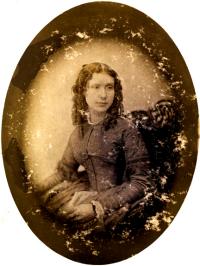
The Poet’s Lesson
There came a voice from the realm of thought,
And my spirit bowed to hear,–
A voice with majestic sadness fraught,
By the grace of God most clear.
A mighty tone from the solemn Past,
Outliving the Poet-lyre,
Borne down on the rush of Time’s fitful blast.
Like the cloven tongues of fire.
Wouldst thou fashion the song, O! Poet-heart,
For a mission high and free?
The drama of Life, in its every part,
Must a living poem be.
Wouldst thou speed the knight to the battle-field,
In a proven suit of mail?
On the world’s highway, with Faith’s broad shield,
The peril go forth to hail.
For the noble soul, there is noble strife,
And the sons of earth attain,
Through the wild turmoil and storm of Life,
To discipline, through pain.
Think not that Poesy liveth alone,
In the flow of measured rhyme;
The noble deed with a mightier tone
Shall sound through latest time.
Then poems two, at each upward flight,
In glorious measure fill;
Be the Poem in words, one of beauty and might,
But the Life one, loftier still.
Mary Gardiner Horsford
(1824-1855)
The Poet’s Lesson.
• fleursdumal.nl magazine
More in: Archive G-H, Archive G-H, CLASSIC POETRY
In Parkzicht brengt Paul Bezembinder een tragische liefdesgeschiedenis.
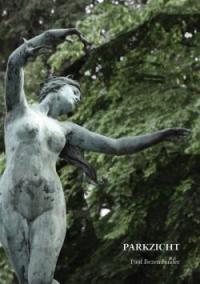 Met zijn inmiddels gevestigde combinatie van klassieke poëzie, pastiche en smartlap laveert hij moeiteloos langs de Scylla van de zoetsappigheid en de Charybdis van de chaos. Het resulteert in beelden die beklijven, die klemmen op de borst, gloeien in het hart en branden in de ziel.
Met zijn inmiddels gevestigde combinatie van klassieke poëzie, pastiche en smartlap laveert hij moeiteloos langs de Scylla van de zoetsappigheid en de Charybdis van de chaos. Het resulteert in beelden die beklijven, die klemmen op de borst, gloeien in het hart en branden in de ziel.
Waarheid of verbeelding? Ongemakkelijk blijft het. U zult na het lezen van deze bundel nooit meer dezelfde zijn.
Dichtbundels Paul Bezembinder:
Gedichten, uitg. Pittige Pixels, Amsterdam (2018).
Kwatrijnen, uitg. Art Brut Digital Editions, Tilburg (2018).
Gedichten, uitg. Leeuwenhof, Oostburg (2020).
Parkzicht, uitg. Leeuwenhof, Oostburg (2020).
Meer informatie, vertalingen en gedichten:
# website paul bezembinder
# website fleursdumal.nl magazine
Paul Bezembinder
Parkzicht
Uitgeverij Leeuwenhof, Oostburg
1 december 2020
Nederlands
Druk 1
Paperback
Afmetingen 21 x 14,8 x 0,6 cm
Aantal pagina’s: 60
ISBN 9789082541281
20,- euro
# new poetry
paul bezembinder
• fleursdumal.nl magazine
More in: - Book Lovers, - Book News, Archive A-B, Archive A-B, Bezembinder, Paul, POETRY IN TRANSLATION: BEZEMBINDER

C’est Lou
Qu’on La Nommait
Il est des loups de toute sorte
Je connais le plus inhumain
Mon cœur que le diable l’emporte
Et qu’il le dépose à sa porte
N’est plus qu’un jouet dans sa main
Les loups jadis étaient fidèles
Comme sont les petits toutous
Et les soldats amants des belles
Galamment en souvenir d’elles
Ainsi que les loups étaient doux
Mais aujourd’hui les temps sont pires
Les loups sont tigres devenus
Et les Soldats et les Empires
Les Césars devenus Vampires
Sont aussi cruels que Vénus
J’en ai pris mon parti Rouveyre
Et monté sur mon grand cheval
Je vais bientôt partir en guerre
Sans pitié chaste et l’œil sévère
Comme ces guerriers qu’Epinal
Vendait Images populaires
Que Georgin gravait dans le bois
Où sont-ils ces beaux militaires
Soldats passés Où sont les guerres
Où sont les guerres d’autrefois
Guillaume Apollinaire
(1880 – 1918)
C’est Lou Qu’on La Nommait
• fleursdumal.nl magazine
More in: Apollinaire, Guillaume, Archive A-B, Archive A-B, Guillaume Apollinaire
Maria Janitschek
Das neue Weib
Frau Selma Knolle liebte die Einsamkeit und schwärmte vom völligen Abgeschlossensein von der Welt. Deshalb veranstaltete sie jede Woche einen Empfangsabend, an dem sich über ein halbes Hundert Menschen in ihrem Hause zusammenfanden. Sie betete die Wahrheit an, und ihre Busenfreundin war eine – Spiritistin; sie stellte die höchsten Anforderungen an die Sittenreinheit des Weibes, und ihre Abgötterei galt einer vierzigjährigen Dame, die noch vor Thorschluss das Jungfernkränzchen abgelegt hatte, um die interessanten Umstände kennen zu lernen.
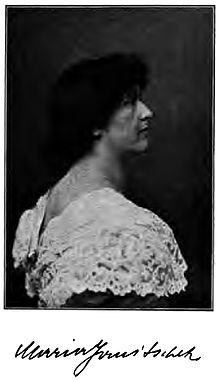 Frau Selma Knolle hatte als Mädchen immer für das Cölibat geschwärmt, deshalb heiratete sie einen athletisch gebauten Mann, der schon von zwei Gattinnen geschieden war. Sie bekam vier Kinder von ihm. Er war ein verteufelt schlauer Bursche, der Doktor. Dem Zug seiner Zeit folgend, hatte er viele Reisen gemacht, sechsmal seinen Beruf gewechselt, sein Vermögen verloren, wieder erworben, abermals verloren, sich durch gute Partien wieder rangiert, aber, zu vielseitig begabt für einen Ehemann, schlechten Erfolg mit seinen Gattinnen gehabt. Zum Schluss war ihm diese grosse, blonde Frau mit dem weichen Fleisch begegnet, die ihm resolut sagte:
Frau Selma Knolle hatte als Mädchen immer für das Cölibat geschwärmt, deshalb heiratete sie einen athletisch gebauten Mann, der schon von zwei Gattinnen geschieden war. Sie bekam vier Kinder von ihm. Er war ein verteufelt schlauer Bursche, der Doktor. Dem Zug seiner Zeit folgend, hatte er viele Reisen gemacht, sechsmal seinen Beruf gewechselt, sein Vermögen verloren, wieder erworben, abermals verloren, sich durch gute Partien wieder rangiert, aber, zu vielseitig begabt für einen Ehemann, schlechten Erfolg mit seinen Gattinnen gehabt. Zum Schluss war ihm diese grosse, blonde Frau mit dem weichen Fleisch begegnet, die ihm resolut sagte:
»Deine andern Gattinnen verstanden dich nicht, ich aber verstehe dich und bin die Richtige für dich.« Da hatte er zum drittenmal eingewilligt, einer schönen Frau zu einem Irrtum zu verhelfen. In den ersten vier Jahren war sie beständig schwanger und konnte sich seiner nicht so erfreuen, wie sie es gewünscht hätte. Dann musste er – er behauptete es wenigstens – eine Reise um die Welt machen. Als er wiederkehrte, hatte er allerlei Marotten mitgebracht.
Er zog z.B. ihre langen Nachthemden an und setzte sich in diesem Aufzug in ein künstlich verdunkeltes Zimmer, um »nachzudenken«. Er behauptete, dann erhabene Gesichte zu haben, die er nach seinem Tod aufzeichnen wollte. Manchmal verschmähte er sogar ihre Nachthemden und sie fand ihn als Adam verkleidet. Schliesslich fing sie an, an seinem Verstand zu zweifeln und eilte, einen Nervenarzt zu holen. Der blieb sehr lange bei Knolle, und als er dessen Zimmer verliess, machte er ein sehr vergnügliches Gesicht, drückte ihr beruhigend die Hand, erkundigte sich teilnahmsvoll nach ihrem Gesundheitszustand und verschrieb ihr Pillen. Sie verstand das alles sich zwar nicht zusammenzureimen, doch war sie zufrieden, dass ihrem Bibibi, wie sie den Athleten nannte, nichts Ernsthaftes fehle. Sie überlegte, zu welchem Beruf sie ihm raten sollte.
Und da sie im Grunde doch an seinem gesunden Verstand zweifelte, kaufte sie ihm eine Zeitung, deren Leitung er zugleich übernehmen sollte.
Sie kalkulierte ganz richtig, dass es für einen Mann von seiner Begabung keine passendere Beschäftigung geben konnte. Bibibi, der Bibibi, der drei strenge Jungfrauen zum Altar geführt hatte – nicht alle seine Jungfrauen hatte er zum Altar geführt! -, kehrte glücklich das Unterste seiner Überzeugungen nach oben. Er nahm nur Ehebruchsromane für seine Zeitung an und lehnte kaltblütig alle andern litterarischen Anerbieten ab. Der Ehebruch musste natürlich in einer verdeckten Schüssel und mit Gewürz aus den Beeten der Romantik serviert sein. Ferner nahm er nur von Damen Arbeiten an. Diese Damen durften indes nicht das vierundzwanzigste Jahr überschritten haben, um noch »ihre ganze Frische« dem Publikum bieten zu können. Zum Schluss pflegte er mit jeder Verfasserin, von der er eine Arbeit acceptierte, die letzten Abmachungen in einem Hotel zu treffen, »weil er da ungestörter sei, als in den unruhigen Redaktionsräumen.«
Sein Lesekomitee, d.h. die jede eingelaufene Arbeit Prüfenden, bestand aus ihm geistig verwandten Weibern in Männerröcken. Daneben hatte er unter andern Kritikern besonders zwei engagiert, die einer gewissen Berühmtheit genossen. Der eine machte alles nieder, was er las, der andere war ein Genie; der machte sogar das nieder, was er nicht gelesen hatte.
Und der Verleger gedieh und die Mitarbeiter gediehen und die Zeitung gedieh. Bibibi machte einen Ableger von ihr und gründete eine kleine illustrierte Zeitschrift. Das Genie schimpfte diese neue Zeitschrift in Grund und Boden nieder, so dass Bibibi sofort eine zweite, die besser sein sollte, erscheinen liess. Die Schimpferei war natürlich nur ein Trick gewesen, um zwei neuen Zeitschriften zum Dasein zu verhelfen. Bibibi war eben ein grosser Schlaukopf und wusste genau, wie man das Zeug anfasste. Frau Selma schwamm in Wonne. Sie erkannte jetzt, dass ihres Mannes anscheinende Verrücktheit nur Schlauheit war. Sowie er sich auf den richtigen Platz gestellt sah, waren alle in ihm schlummernden Fähigkeiten erwacht.
Er schmeichelte der verkappten Lüsternheit des Publikums und gab ihr fette Bissen, aber nur von der langen Sauce scheinheiliger Frömmelei begossen. Ohne diese nie, denn er war sehr für die Moral seiner Leser besorgt. Man sündigte hier nur in verdunkelten Ecken. Die Sonne durfte es nicht sehen. Nackt zu gehen war verboten, die Röckchen zu lüpfen erlaubt. Wo sich in einem Roman eine Gestalt fand, die gegen Anfechtungen kämpfte, wurde der Roman zurückgewiesen. Anständige, d.h. kluge Leute haben keine Anfechtungen, entschied der Chefredakteur; denn wenn sie solche haben, kommt es nicht an den Tag. Wird aber ein Mensch mit Anfechtungen geschildert, so muss er gleich als niederträchtiger Kerl hingestellt werden. Frau Selma und das Publikum glaubten an die strenge Moral des grossen Bibibi. Nur eins konnte Selma nicht recht verstehen: diese Kontraktabschlüsse im Hotel.
Einmal brachte sie es durch Schlauheit und Thürenhorcherei dahin, in Erfahrung zu bringen, wann er seine nächsten Abmachungen mit einem neuen litterarischen Stern im Hotel haben würde. Eine Stunde vorher fuhr sie dicht verschleiert, eine Handtasche tragend, dahin und liess sich die Stube neben dem vereinbarten Zimmer geben. Nach einer geraumen Zeit hörte sie endlich die beiden eintreten. Sie vernahm Bibibis Stimme und eine schüchterne zweite, die der Frau A.B., einer jung verheirateten Dame, angehörte.
Selma legte hochaufhorchend das Ohr an die Thür. Zuerst hörte sie nur ein vergnügliches Grunzen, wie Bibibi von sich gab, wenn er glücklich küsste. Dann kamen wohlbekannte Laute, so wie sie zu Anfang ihrer Ehe ihr selbst entflohen waren, wenn Bibibi gar zu stürmisch zu seinem Recht gelangen wollte. Dann verriet das Knarren einer indiskreten Bettstatt allerlei, was Selma besser verborgen geblieben wäre. Dann folgte die feierliche Stille nach dem Sturm.
Selma hatte sich behutsam auf den Boden niedergelassen, denn das Stehen wurde ihr unbequem. Später hörte sie eine pipsende Stimme jammern: »O Gott, mein armer Mann, mein armer Mann! Was wird er bloss sagen, wenn das Essen um Eins nicht fertig ist; o ich muss nach Hause!« …
Man hörte allerlei rauschen, dann Wassergeriesel, dann flüsterte Bibibi: »Lass mich zuerst hinab, Kindchen, ich mache alles beim Portier ab, ich habe fürchterliche Eile. Die Fahnen müssen um 12 Uhr nach der Druckerei und jetzt ist’s dreiviertel auf Zwölf. Den Kontrakt erhältst du morgen. Der Roman erscheint in sechs Wochen, wir bringen dein Vollbild und du bekommst dreitausend Mark Honorar für den Erstabdruck. Hab vielen Dank, mein Herz. Das nächste Mal machen wir’s mit mehr Musse. Adieu!«
Frau Selma erhob sich von ihrem Lauscherposten. War das ein Rückfall in seine Verrücktheit gewesen? Gewiss, nur das konnte es sein! Sie sah ihn grübelnd, forschend beim Mittagessen an und gab ihm drei Abende hindurch keinen[204] Gutenachtkuss. Aber sie horchte von nun an viel an der Thür, die in das Redaktionszimmer führte, in dem er allein arbeitete.
Sie brachte allerlei in Erfahrung. Wie Schriftstellerinnen oft zu ihrem Ruhm kamen. Wie andere abgewiesen wurden, weil sie bei gewissen Zumutungen hochmütig aufgefahren waren. Weshalb die Belletristik das fast ausschliesslich vom Weibe beherrschte Gebiet geworden war. Wie dem Publikum eine Geschmacksrichtung aufgedrängt wurde, die nur von der jeweiligen Appetitsverschiedenheit des Chefredakteurs abhing. Wie die Guillotine der Kritik ohne Hirn und Vernunft arbeitete. Wie immer weniger ernsthafte Männer auf dem schöngeistigen Arbeitsfeld mitkämpfen wollten …
Sie verwunderte sich über manches, aber sie war zu sehr Weib, um ihre persönliche Sache nicht als Hauptsache zu empfinden. Sie horchte weiter und sie vernahm noch verschiedene »Vereinbarungen«. Nur um ihr schlecht wiedergegebenes Bild in eine Tageszeitung zu lancieren, ergaben sich manche dieser jungen Frauen den Launen Bibibis.
Nein, Bibibi, kein Verrückter bist du, eine menschliche Bestie bist du, schluchzte die arme Frau Selma im Nebenzimmer. Aber warte, ich will mich an dir rächen, dass du wirklich verrückt werden sollst. Vor allem dafür, dass du mich in Bezug auf deine eheliche Treue irre geführt hast. Oder hast du mich überhaupt nie an sie glauben machen wollen und – ich selbst habe mich im Glauben an sie bestärkt? Dann sollst du es doppelt büssen, denn was man selbst Dummes begeht, daran ist immer der andere schuld … Und Selma, bis zum Rand mit Wut und Erbitterung gefüllt, vergass ihren Stolz, stellte sich mit anderm weiblichen Federvieh auf eine Stufe und schrieb ein Buch. Sie nannte es: »Das seid Ihr!« Schon das erste Wort, mit dem wir empfangen werden, begann sie, ist ein geringschätziges. Nur ein Mädchen! Oder heisst es in den meisten Fällen nicht so, wenn die sage femme uns in die Arme des Vaters legt? Dann später werden wir von unsern uns an Kraft überlegenen Brüdern gefoppt, übervorteilt, misshandelt. Die öden Jahre der Bleichsucht beginnen. Unlustig, von einem Gefühl der Dumpfheit und Schwere gequält, schleppen wir uns dahin, bis ein Tag uns das mit mancherlei körperlichen Leiden erkaufte Siegel aufdrückt, dass wir nun zum Gebären reif sind. Haben wir Geld und ein hübsches Gesicht, so ist bald der Freier da, der um uns wirbt. Nach einer unnatürlich verlebten Verlobungszeit, in der wir unser erwachendes Temperament verleugnen und Komödie spielen müssen, werden wir endlich zum Traualtar geführt. Die heimlich tausendmal ersehnte Hochzeitsnacht ist da. Anstatt der werbenden Zärtlichkeit des Geliebten zu begegnen, werden wir von einem keuchenden, brünstigen Gewalthaber genotzüchtigt, der vom Priester und unsern Eltern das Recht dazu empfangen hat. Nach Schmerzen und Demütigungen mancherlei Art werden wir endlich schwanger. Fast ein Jahr widriger Verunstaltung, widriger Krankheitszustände, dann kommt die Stunde, wo unserer Schamhaftigkeit der letzte Schleier entrissen wird. Nackt wie ein Tier, in Bewusstlosigkeit versetzt, oder im Krampf verzerrt, ruhen wir hilflos vor den Augen eines fremden Mannes, des Arztes, der oft noch Kollegen an der Seite hat. Man wühlt in unserm Körper, verspritzt unser Blut und legt sorgsam Verbände und Salben zurück fürs »nächste« Mal. Noch kaum von unsern Wunden geheilt, findet uns die neu aufflammende Gier des Mannes, zu der sich vielleicht noch der Kitzel der Grausamkeit gesellt. Nach elf Monaten machen wir die Schlachtscene aufs neue durch. Und so weiter. Eines Tages aber harren wir vergebens der Liebkosungen unseres Gatten. Er ist unserer satt geworden. Die Liebeskunststücke, die er uns gelehrt hat, besitzen keinen Reiz mehr für ihn. Nun geht er zu andern Frauen, um neue einzuüben. Aber die können wir nicht mehr erlernen, denn unser Körper, von ihm gebrochen und zerstört, hat keine Kraft mehr in seinen Muskeln. Wir sind schlaff geworden. Wenn er ehrlich ist, sagt er uns die Wahrheit mit offenem Visier; wenn er feig ist, betrügt er uns hinter unserm Rücken …
Und nun begann die feurige Anklage gegen den einen. Das ganze Buch war so persönlich gehalten, dass jeder sofort wusste, Bibibi sei hier in die Hände einer Überlegnen geraten, die ihn durchschaute. Die Frauen alle, die geknechteten, geopferten, misshandelten, umringten ihre mutige Schwester, das neue Weib, die erste, die es gewagt hatte, ihren Tyrannen offen an den Pranger zu stellen. Sie drückten ihr die Hände, wenn sie sie auf der Strasse trafen, sie schrieben ihr danküberströmende Briefe.
Sie war mit einem Male die Heldin der unterdrückteren Hälfte der Menschheit geworden. Man war aufs höchste darauf gespannt, wie sie nun ihre edlen revolutionären Ideen in Thaten umsetzen würde; denn nach diesem unerhörten Buch musste sie mit einem verächtlichen Fahrwohl von ihm, dem Knechter ihrer Individualität und Frauenwürde, scheiden. Einsame Arbeit in stolzer Unabhängigkeit würde ihr Märtyrerlos worden. Man bereitete sich vor, ihre Apotheose zu erleben.
Bibibi machte ein langes und immer längeres Gesicht. Alle Wetter! War er trotz aller Vorsichtsmassregeln doch noch zu unvorsichtig gewesen? Hatte sie Verdacht geschöpft? Hatte ihn eine seiner Freundinnen verraten? Ihm, dem Verfechter der öffentlichen Moral, war die Sache höchst unangenehm. Hauptsächlich jedoch deshalb, weil er sich als – unschlau erwiesen hatte. Wer wollte nicht lieber für einen Schurken als für einen dummen Kerl gelten? Nun, er hatte jetzt festen Boden unter seinen Füssen, mochte sie ihn schliesslich verlassen. Er liess doppelt empörte Tiraden gegen alle los, die einen Schritt vom Wege der breiten, fetten Moral thaten. Ja, er begann sich gegen das Weib zu wenden, dem die heiligsten Bande nicht zu ehrwürdig wären, um mit ihnen sein Spiel zu treiben. Er hing nicht so sehr an Selma, um eine Trennung von ihr als zu schweren Schicksalsschlag zu empfinden, aber den Skandal hasste er.
Seit sie wusste, dass er ihr Buch gelesen hatte, und das ungeheure Aufsehen ermass, das es erregte, ging sie ihm scheu aus dem Wege. Sie kannte seine herkulischen Kräfte, dazu seine Gereiztheit; wer weiss, was geschah. Auch ihre Bekannten dachten ähnlich und sahen sie schon als Opfer ihres Mutes, als Märtyrerin ihrer Ideen. Man erwartete bang die letzte Katastrophe.
Es gab Journalistinnen, die schon einen Nekrolog für sie im Pult bereit liegen hatten.
Da kam das, was die Wenigsten vorausgesetzt hatten …
Eines Abends, als sie von einem Gang heimkam, trat ihr Bibibi in den Weg.
»Magst du einen Augenblick bei mir eintreten?« fragte er mit eisiger Höflichkeit. Sie folgte ihm und blieb mit schlotternden Knieen an der Thür stehen. Er schritt gleichmütig auf und nieder.
»Ich habe also den Scheidungsprozess eingeleitet,« log er, »denn nach deinem persönlichen Angriff auf mich durfte ich unmöglich anders handeln. Ich ersuche dich nun, die Kinder so schonend wie möglich auf die Sache vorzubereiten. Das Gericht wird entscheiden, ob sie vater- oder mutterlos ihr junges Leben weiterführen sollen. Was mich betrifft, ich bin ein Mann der Arbeit, der Thätigkeit, mein Beruf wird mich über mein -,« er stockte, »über mein unverdientes Schicksal erheben. Und wenn -,« er stockte wieder, »wenn ich es nicht ertragen sollte, dann –«
In diesem Augenblick nahm die alte Eva, die alte Eva, die niemals auch aus dem »neuesten« Weibe auszutreiben ist, wieder Besitz von Frau Selma. Sie sank auf die Kniee und ergriff die Hände ihres Gatten.
»Bibibi, kannst du mir das Buch verzeihen?«
Er verstand sofort die Situation, die er als Menschenkenner vorausgeahnt hatte, und richtete sich auf.
»Nein!«
»Bibibi, bedenke, welche Qualen du mir verursacht hast; ich war toll geworden, ich sehe es jetzt ein, aber – verraten hast du mich doch, das kannst du nicht leugnen, denn ich war Zeugin.«
»Horcherin!« Er stiess sie verächtlich von sich und that einige Schritte.
Sie rutschte ihm auf den Knieen nach.
»Bibibi, schlage mich, aber verstosse mich nicht; ich liebe dich, auch wenn du mich mit Füssen trittst, mir andere vorziehst; lass mich nur neben dir sein, die letzte, die allerletzte, nur neben dir! Dir habe ich meine Kinder geboren, meine Jugend hingegeben, ich kann ja nicht von dir fort, verzeih mir …!«
Und Bibibi blickte auf sie herab. Das war also das neue Weib. Was war nun eigentlich das neue an ihm? War es mehr als seine gesteigerte – Redseligkeit, die sich in anklagenden Romanen, stürmischen Versammlungen, kampflustigen Vorträgen offenbarte? Er furchte die Stirne und hiess grossmütig Selma aufstehen …
Bei sich aber beschloss er, noch gründlichere Frauenstudien zu treiben …
More in: Archive I-J, Archive I-J, The Ideal Woman

Ein modernes Weib
Ein Mann beleidigte ein Weib. Es war
Von jenen schnöden Thaten eine, die
Kein Weib vergessen und vergeben kann.
Geraume Zeit verstrich. Da eines Abends
Ward an die Thür des Frevlers laut gepocht.
Er rief: “Herein”, und sah voll tiefen Staunens,
In Trauerkleidern eine Frau vor sich.
Sie schlug den Schleier bald zurück. Er blickte
In ihre großen stolzerstarrten Augen,
In diese großen schmerzversengten Augen …
Er lächelte verlegen, denn ein Schauer
Erfaßte ihn … Er bot ihr höflich Platz,
Sie aber dankte, und mit ruhiger Stimme
Sprach sie zu ihm: “Du hast mich schwer beleidigt,
Es war nur Gott dabei … vor diesem Gott,
Vor dir, und mir allein, will ich den Flecken
Den Makel meiner Ehre, zugefügt
Von deiner Hand, verlöschen.
Höre nun!
Um dies zu thun, bleibt mir ein Mittel nur:
Ich kann nicht gehn, um einem fremden Menschen
Das was ich selbst mir kaum zu sagen wage,
Zu offenbaren. Für mich herrscht kein Richter,
Er wär′ denn blind und taub und stumm, deshalb
(Ein Schildern des Vergangenen glich′ aufs Haar
Der neuen That, hieß′ selber mich entehren),
Deshalb gibt′s eins nur: hier sind Waffen, wähle!”
Sie stellte auf den Tisch ein Kästchen hin
Und öffnete den Deckel. – –
Lange standen
Die beiden Menschen stumm. Er sah sie an,
Sie hielt das glänzend große Aug′ gerichtet
Fest auf die Waffen.
Plötzlich brach er aus
In lautes Lachen. Da durchglühte feurig
Ein tiefes Rot die farbenlosen Wangen
Der jungen Frau. Wie, wenn die ganze Antwort
Dies Lachen wär′? Sie hätte schreien mögen
Vor Wut und Elend. Aber sie bezwang sich,
Und sagte mild: “Wenn dir ein Unvorsichtiger
Zufällig auf den Fuß getreten wäre,
Du würdest ohne lange Ueberlegung
Ihm deine Karte in das Antlitz schleudern,
Nichts Lächerliches fändest du dabei.
Nun denk′: nicht auf den Fuß trat mir ein Mensch,
Mein Herz trat er in Stücke, meine Ehre!
Verlang′ ich mehr, als du verlangen würdest
Für einen unvorsichtigen Schritt, sag′ selbst,
Ist das nicht billig?”
Lächelnd sah er ih
Ins zornerglühte Antlitz. “Liebes Kind,
Du scheinst es zu vergessen, daß ein Weib
Sich nimmer schlagen kann mit einem Manne.
Entweder geh zum Richter, liebes Kind,
Gesteh ihm alles, gerne unterwerfe
Ich seinem Urteil mich. Nicht? Nun dann bleibt
Dir nur das eine noch: vergesse, was du
Beleidigung und Schmach nennst. Siehst du, Liebe,
Das Weib ist da zum Dulden und Vergeben …”
Jetzt lachte sie.
“Entweder Selbstentehrung
Wenn nicht, ein ruhiges Tragen seiner Schmach,
Und das, das ist die Antwort, die ein Mann
In unserer hellen Zeit zu geben wagt
Der Frau, die er beleidigt.”
“Eine andere
Wär′ gegen den Brauch.”
“So wisse, daß das Weib
Gewachsen ist im neunzehnten Jahrhundert,”
Sprach sie mit großem Aug′, und schoß ihn nieder.
Maria Janitschek
(1859 – 1927)
Gedicht
Ein modernes Weib
• fleursdumal.nl magazine
More in: Archive I-J, Archive I-J, CLASSIC POETRY, The Ideal Woman
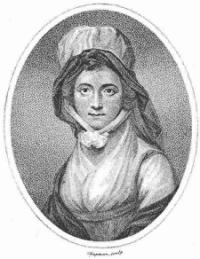
Sonnet XLII
Lo! the YEAR’s FINAL DAY! – Nature performs
Its obsequies with darkness, wind, and rain;
But Man is jocund. – Hark! th’ exultant strain
From towers and steeples drowns the wintry storms!
No village spire but to the cots and farms,
Right merrily, its scant and tuneless peal
Rings round! – Ah! joy ungrateful! – mirth insane!
Wherefore the senseless triumph, ye, who feel
This annual portion of brief Life the while
Depart for ever? – Brought it no dear hours
Of health and night-rest? – none that saw the smile
On lips belov’d? – O! with as gentle powers
Will the next pass? – Ye pause! – yet careless hear
Strike these last Clocks, that knell th’ EXPIRING YEAR!
Dec. 31st, 1782.
Anna Seward
(1742-1809)
Lo! the YEAR’s FINAL DAY!
(Sonnet XLII)
• fleursdumal.nl magazine
More in: #Editors Choice Archiv, Archive S-T, Archive S-T
Academy Award-winning actress, director, producer, and activist Natalie Portman retells three classic fables and imbues them with wit and wisdom.
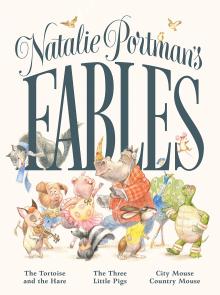 From realizing that there is no “right” way to live to respecting our planet and learning what really makes someone a winner, the messages at the heart of Natalie Portman’s Fables are modern takes on timeless life lessons.
From realizing that there is no “right” way to live to respecting our planet and learning what really makes someone a winner, the messages at the heart of Natalie Portman’s Fables are modern takes on timeless life lessons.
Told with a playful, kid-friendly voice and perfectly paired with Janna Mattia’s charming artwork, Portman’s insightful retellings of The Tortoise and the Hare, The Three Little Pigs, and Country Mouse and City Mouse are ideal for reading aloud and are sure to become beloved additions to family libraries.
Natalie Portman is an Academy Award-winning actress, director, producer, and activist whose credits include Leon: The Professional, Cold Mountain, Closer, V for Vendetta, the Star Wars franchise prequels, A Tale of Love and Darkness, Jackie, and Thor: Love and Thunder. Born in Jerusalem, Israel, she is a graduate of Harvard University, and now lives with her family in Los Angeles. Natalie Portman’s Fables is her debut picture book.
Janna Mattia was born and raised in San Diego. She received a degree in Illustration for Entertainment from Laguna College of Art and Design, and now works on concept and character art for film, illustration for licensing, and private commissions. Natalie Portman’s Fables is her picture book debut.
Natalie Portman’s Fables
Natalie Portman (Author)
Janna Mattia (Illustrator)
Age Range: 4 – 6 years
Hardcover: 64 pages
Publisher: Feiwel & Friends (October 20, 2020)
Language: English
ISBN-10: 1250246865
ISBN-13: 978-1250246868
$17.99
# new books
Natalie Portman’s Fables
• fleursdumal.nl magazine
More in: - Book Lovers, - Book News, - Bookstores, Archive O-P, AUDIO, CINEMA, RADIO & TV, Tales of Mystery & Imagination
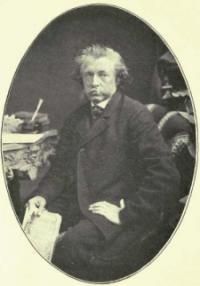
Ingratitude
Full on the wave the moonlight weeps,
To quiet its weary breast;
Cruelly cold the mad wave leaps,
With the moonshine on its crest;
Or with scowl, or growl, to the shore it creeps,
And sinks to its selfish rest.
Full on yon man-brute smiles the wife,
To gladden his turbid breast;
Savagely stern he seeks the life
Where he erewhile sought for zest;
With a curse, or worse, he ends the strife,
And sinks to his drunken rest.
Sea! has the moon no charms for thee
That can touch thy cruel breast?
Man! cannot woman’s charity
Give ease to thy soul oppressed?
Thou shalt flee, O sea! the moon’s witchery,
Till man has his final rest!
Charles Sangster
(1822 – 1893)
Ingratitude
• fleursdumal.nl magazine
More in: Archive S-T, Archive S-T, CLASSIC POETRY
 During the Revolutionary war, a young American lady was murdered, while dressed in her bridal robe, by a party of Indians, sent by her betrothed to conduct her to the village where he was encamped.
During the Revolutionary war, a young American lady was murdered, while dressed in her bridal robe, by a party of Indians, sent by her betrothed to conduct her to the village where he was encamped.
After the deed was done, they carried her long hair to her lover, who, urged by a frantic despair, hurried to the spot to assure himself of the truth of the tale, and shortly after threw himself, in battle, on the swords of his countrymen.
After this event, the Indians were never successful in their warfare, the spectre of their victim presenting itself continually between them and the enemy.
The Phantom Bride. – Indian Legends
The worn bird of Freedom had furled o’er our land
The shattered wings, pierced by the despot’s rude hand,
And stout hearts were vowing, ‘mid havoc and strife,
To Liberty, fortune, fame, honor, and life.
The red light of Morning had scarcely betrayed
The sweet summer blossoms that slept in the glade,
When a horseman rode forth from his camp in the wood,
And paused where a cottage in loneliness stood.
The ruthless marauder preceded him there,
For the green vines were torn from the trellis-work fair,
The flowers in the garden all hoof-trodden lay,
And the rafters were black with the smoke of the fray:
But the desolate building he heeded not long,
Was it echo, the wind, or the notes of a song?
One moment for doubt, and he stood by the side
Of the dark-eyed young maiden, his long-promised bride.
Few and short were their words, for the camp of the foe
Was but severed from them, by a stream’s narrow flow,
And her fair cheek grew pale at the forest bird’s start,
But he said, as he mounted his steed to depart,
“Nay, fear not, but trust to the chief for thy guide,
And the light of the morrow shall see thee my bride.”
Why faltered the words ere the sentence was o’er?
Why trembled each heart like the surf on the shore?
In a marvellous legend of old it is said,
That the cross where the Holy One suffered and bled
Was built of the aspen, whose pale silver leaf,
Has ever more quivered with horror and grief;
And e’er since the hour, when thy pinion of light
Was sullied in Eden, and doomed, through a night
Of Sin and of Sorrow, to struggle above,
Hast thou been a trembler, O beautiful Love!
‘T was the deep hush of midnight; the stars from the sky
Looked down with the glance of a seraph’s bright eye,
When it cleaveth in vision from Deity’s shrine
Through infinite space and creation divine,
As the maiden came forth for her bridal arrayed,
And was led by the red men through forest and shade,
Till they paused where a fountain gushed clear in its play,
And the tall pines rose dark and sublime o’er their way.
Alas for the visions that, joyous and pure,
Wove a vista of light through the Future’s obscure!
Contention waxed fierce ‘neath the evergreen boughs,
And the braves of the chieftain were false to his vows;
In vain knelt the Pale-Face to merciless wrath,
The tomahawk gleamed on her desolate path,
One prayer for her lover, one look towards the sky,
And the dark hand of Death closed the love-speaking eye.
They covered with dry leaves the cold corpse and fair,
And bore the long tresses of soft, golden hair,
In silence and fear, through the dense forest wide,
To the home that the lover had made for his bride.
He knew by their waving those tresses of gold,
Now damp with the life-blood that darkened each fold,
And, mounting his steed, pausing never for breath
Sought the spot where the huge trees stood sentries of Death;
Tore wildly the leaves from the loved form away,
And kissed the pale lips of inanimate clay.
But hark! through the green wood what sounded afar,
‘T was the trumpet’s loud peal–the alarum of war!
Again on his charger, through forest, o’er plain,
The soldier rode swift to his ranks ‘mid the slain:
They faltered, they wavered, half turning to fly
As their leader dashed frantic and fearlessly by,
The damp turf grew crimson wherever he trod,
Where his sword was uplifted a soul went to God.
But that brave arm alone might not conquer in strife,
The madness of grief was conflicting with Life;
His steed fell beneath him, the death-shot whizzed by,
And he rushed on the swords of the victors to die.
‘Neath the murmuring pine trees they laid side by side,
The gallant young soldier, the fair, murdered bride:
And never again from that traitorous night,
The red man dared stand in the battle’s fierce storm,
For ever before him a phantom of light,
Rose up in the white maiden’s beautiful form;
And when he would rush on the foe from his lair,
Those locks of pale gold floated past on the air.
Mary Gardiner Horsford
(1824-1855)
The Phantom Bride. – Indian Legends
• fleursdumal.nl magazine
More in: Archive G-H, Archive G-H, CLASSIC POETRY, Western Fiction

Op café
Aan de toog neuriën treuzelige drinkers gebruikte
melodieën, met de nonchalance van zangers
die onbang zijn als de stem van Björk. Hoor hoe ze
in hun liederen worden van huiverende ontwakers
tot dochterloze vaders, ontwaarde vertalers van
vrijpostige heiligen, gulle grensvrezers in de ochtend.
Bert Bevers
gedicht
Op café
(ongepubliceerd)
• fleursdumal.nl magazine
More in: Archive A-B, Archive A-B, Bevers, Bert
Following the Pulitzer prize-winning collection Stag’s Leap, Sharon Olds gives us a stunning book of odes. Opening with the powerful and tender “Ode to the Hymen,” Olds addresses and embodies, in this age-old poetic form, many aspects of love and gender and sexual politics in a collection that is centered on the body and its structures and pleasures.
 The poems extend parts of her narrative as a daughter, mother, wife, lover, friend, and poet of conscience that will be familiar from earlier collections, each episode and memory burnished by the wisdom and grace and humor of looking back.
The poems extend parts of her narrative as a daughter, mother, wife, lover, friend, and poet of conscience that will be familiar from earlier collections, each episode and memory burnished by the wisdom and grace and humor of looking back.
In such poems as “Ode to My Sister,” “Ode of Broken Loyalty,” “Ode to My Whiteness,” “Blow Job Ode,” and “Ode to the Last Thirty-Eight Trees in New York City Visible from This Window,” Olds treats us to an intimate examination that, like all her work, is universal, by turns searing and charming in its honesty.
From the bodily joys and sorrows of childhood to the deaths of those dearest to us, Olds shapes the world in language that is startlingly fresh, profound in its conclusions, and life-giving for the reader.
SHARON OLDS was born in San Francisco and educated at Stanford University and Columbia University. The winner of both the Pulitzer Prize and England’s T. S. Eliot Prize for her 2012 collection, Stag’s Leap, she is the author of eleven previous books of poetry and the winner of many other honors, including the National Book Critics Circle Award for The Dead and the Living. Olds teaches in the Graduate Creative Writing Program at New York University and helped to found the NYU outreach programs, among them the writing workshop for residents of Goldwater Hospital on Roosevelt Island, and for the veterans of the Iraq and Afghanistan wars. She lives in New York City.
Odes
by Sharon Olds
Published by Knopf
128 Pages
Hardcover
ISBN 9780451493620
$26.95
Paperback
ISBN 9780451493644
$16.95
2016
# new poetry
Sharon Olds:
Odes
• fleursdumal.nl magazine
More in: #Editors Choice Archiv, #More Poetry Archives, Archive O-P, Archive O-P
Thank you for reading Fleurs du Mal - magazine for art & literature